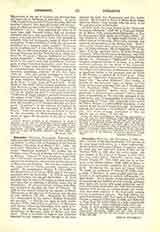

Durandus, WILLIAM, THE YOUNGER, d. 1328, canonist, nephew of the famous ritualist and canonist of the same name (with whom he is often confounded). He was at first archdeacon of Mende, Languedoc, under his uncle and was appointed bishop of that see by Boniface VIII, in 1296, after the uncle’s death. He was present at the Council of Vienne in 1311-1312. The pope (John XXII, 1316-1334) and the King of France (Charles IV, 1316-1328) sent him on an embassy to the Sultan Orkhan (1326-1360) at Brusa, to obtain more favorable conditions for the Latins in Syria. He died on the way back, in Cyprus (1328). He wrote, by command of Clement V (1305-1314), a work: “Tractatus de modo concilii generalis celebrandi et de corruptelis in ecclesiae reformandis”, in three books. It is a treatise on the canonical process of summoning and holding general councils, gathered from approved sources with many quotations and illustrations from the Fathers and from church history, together with attacks on various abuses and corruptions that were common in the fourteenth century among ecclesiastical persons. The first edition was printed at Lyons in 1531, then again at Paris by Philip Probus, a canonist of Bourges, in 1545, and dedicated to Pope Paul III (1534-1549) as a help towards the Council of Trent. Other editions, Paris, 1671, etc.
ADRIAN FORTESCUE

